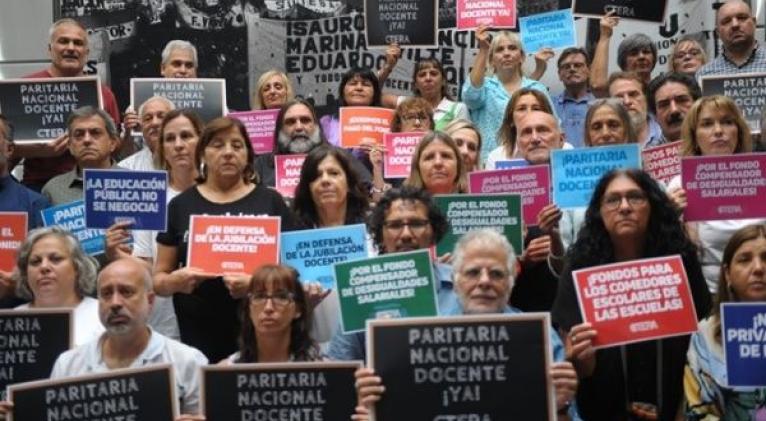Argentine Teachers To Go on National Strike Next Week
especiales

On Thursday, the Confederation of Education Workers of the Argentine Republic (CTERA) announced the start of a 24-hour national strike beginning next Monday to demand better incomes for education workers.
RELATED:
Argentine: President Milei Closes Agency Against Discrimination
In justifying this collective action, CTERA Secretary Sonia Alesso explained that President Javier Milei has made policy decisions that will not allow teachers to have better incomes.
Among the actions to reduce the state's influence in the Argentine economy and society, he reduced the scope of the Education Ministry and turned it into a "secretariat."
Milei also eliminated the National Teacher Incentive Fund (FONID), which provided resources to provinces to finance a percentage of salaries and overtime for public education teachers.
The text reads, "The union mobilization is a response to Milei's harsh fiscal adjustment, the fastest in the last four decades of Argentine democracy. Everything indicates that the mobilization will grow because the government is not willing to give in."
"All of that will affect Argentine families and teachers... Since there will no longer be payment for overtime, teachers will not only have no additional income but will earn less. That is the scenario," Alesso emphasized.
“We demand that the national government send to the provinces the resources that correspond to the FONID, the salary compensation fund, educational programs, cafeterias, and school infrastructure,” said Roberto Baradel, who is the secretary of the Unified Union of Buenos Aires Education Workers (SUTEBA).
Starting on Feb. 27, the Milei administration will discuss with teachers the issue of "Paritarias," which are collective negotiations between employers and employees. This discussion will take place a few days after the start of the school year in the country.
In response to the strike, however, Presidency spokesperson Manuel Adorni announced that the Milei administration is considering decreeing education as an "essential service."
If this happens, education workers will not be able to carry out mass strikes as current Argentine laws establish that employees in essential sectors must ensure a service provision of no less than 75 percent.
This new conflict between Milei and Argentines occurs amid an extremely unfavorable macroeconomic context for the vast majority of the population.
Since the far-right politician assumed the presidency in December, the Argentine peso has devalued by more than 54 percent, and the poverty rate has increased to 57.4 percent at the end of January, according to a study carried out by the Catholic University.














Add new comment